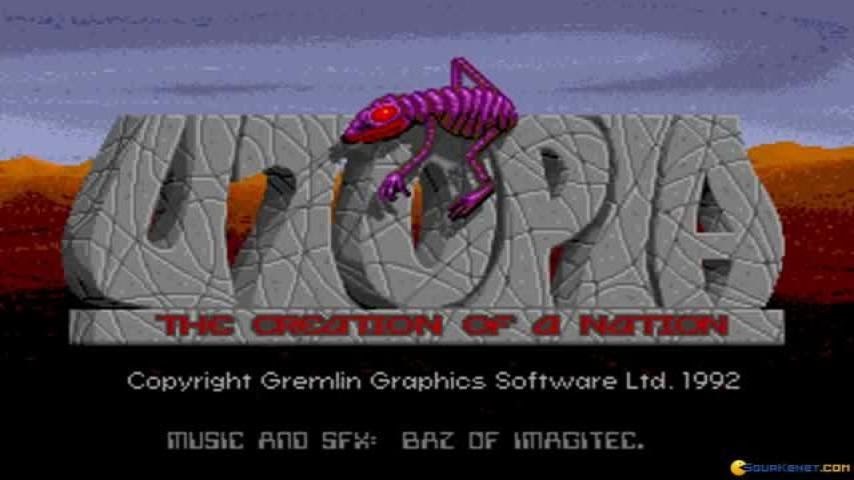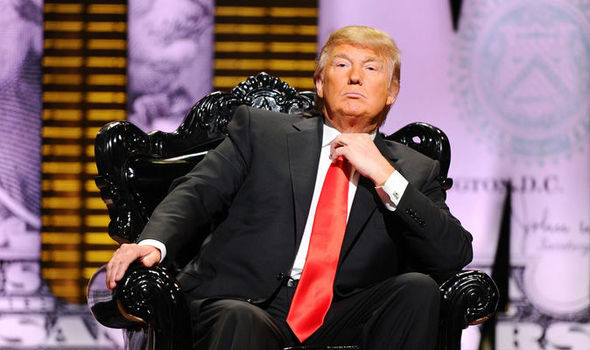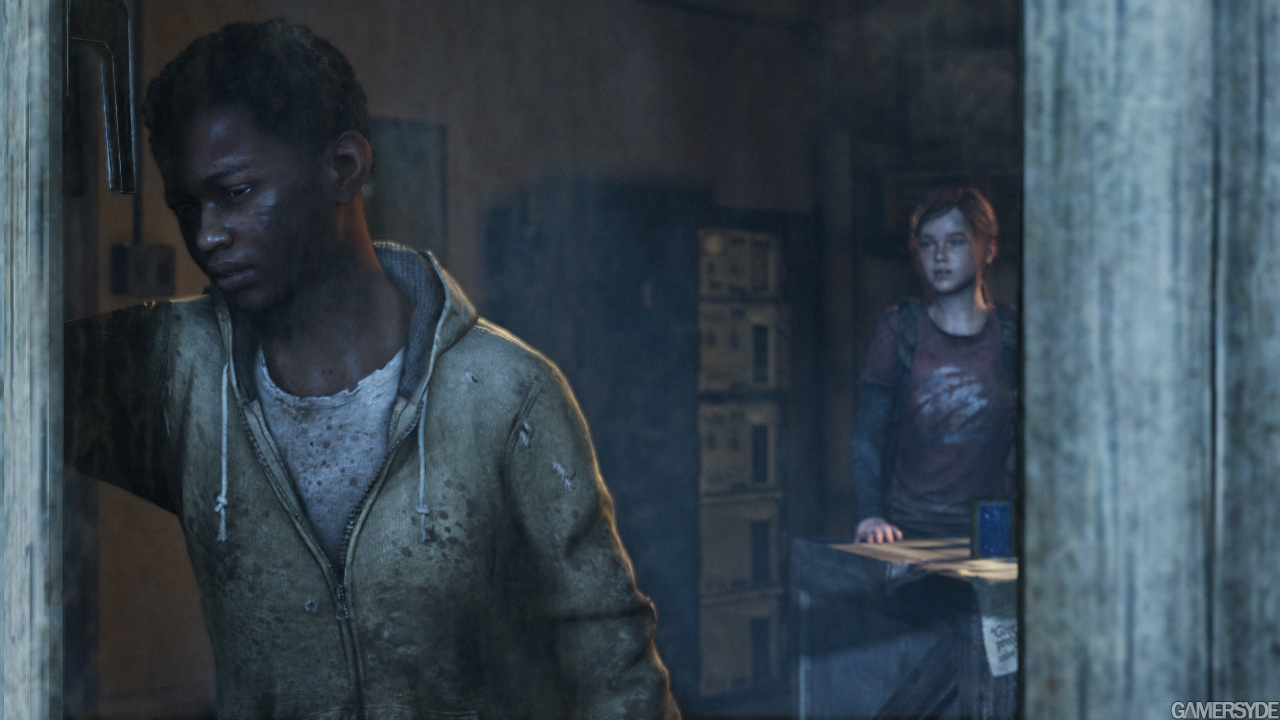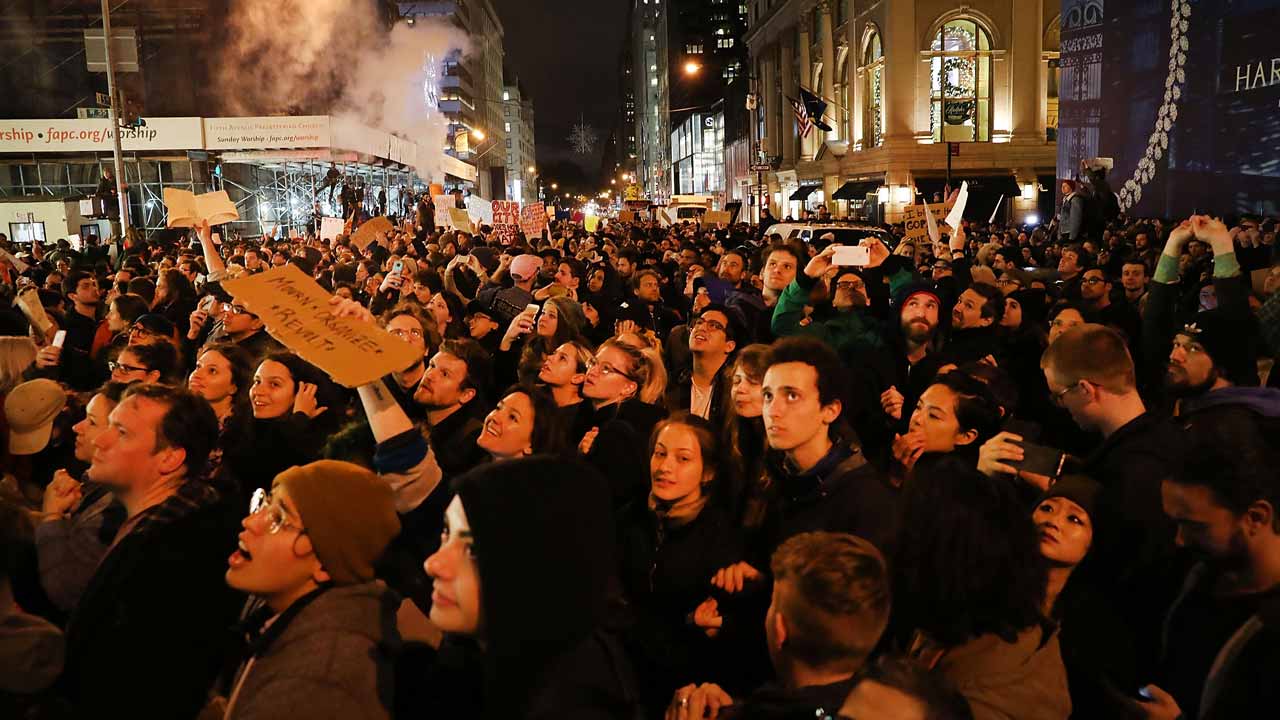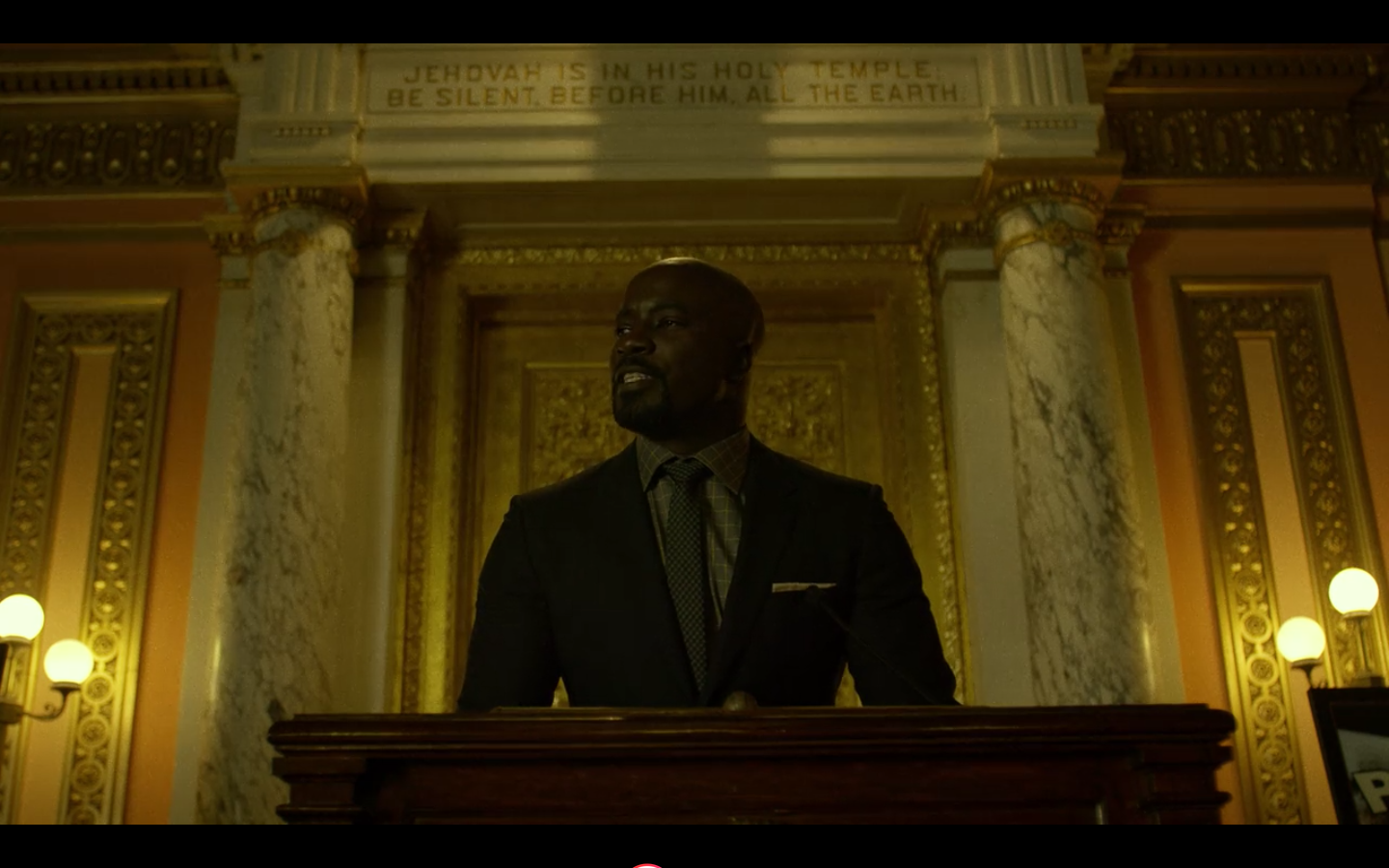Twice a year I get invited to speak to a bunch of American (and sometimes Canadian) university students on an exchange program about ‘what it means to be Australian’… I confess it’s not a question I’d thought much about until my friend who runs the program asked me onto this panel.
On Australian Stories
I’ve been more deliberate in thinking about this question since the first time around; it makes me look and sound smarter; so I’ve become more deliberate in how I approach Australia Day, and in how I understand the ‘Australian Story’ (or, rather, stories). I’ve decided that the answer to the question ‘what does it mean to be Australian?’ is often profoundly shaped by how you understand the ‘Australian Story’ (and how many stories you recognise). There are, I believe, four fundamental stories always intersecting in the Australian identity (and in many Australian family stories, and so in many individuals).
- The Indigenous story: a story of invasion, dispossession and perpetual systemic injustice perpetrated by those in power, and reflected in the surrounding culture.
- The ‘Establishment’ story: a story of the expansion of the British empire (including membership in the Commonwealth, a system of government, an established religion and ‘establishment’ high culture).
- The ‘Convict’ story: a story of getting one over the establishment from back home; who sent our people to paradise as a ‘punishment’ for very small misdemeanours, who were brutal when we arrived, but who eventually released us into a land of opportunity. There’s an amalgam of these two stories in the ‘settler story’ which is a story of deliberate migration for new opportunity.
- The ‘Migrant’ story: this story is a more recent version of the settler story; it’s of people who’ve arrived post-establishment, seeking opportunity and prosperity. This included the gold rushes, the waves of immigration from Europe (especially Italy and Ireland), and more recently immigration from Asia. There’s a subset of this story that includes both refugees and asylum seekers.
Before being confronted with this question for the purposes of this class, I’d almost assumed that to be Australian was pretty much to be like me… to really love the idea of multiculturalism (especially the food); to have almost no sense of my ‘European’ heritage, and to believe that most of my view of Australia had been developed in my formative years growing up in a country town on the east coast. I was definitely aware that there were ‘other’ Australian stories out there that were part of the tapestry of Aussie life; the community I grew up in had a relatively large indigenous population, living in a city meant I’d spent more time with first and second generation migrant families from various places (especially from within Asia), and living in North Queensland and promoting Ingham and Charters Towers as holiday destinations built on their Italian and gold rush histories meant I was aware of different historic influxes of migrants who’d arrived in Australia seeking opportunity.
Despite being someone who’s possibly a bit of a European mixed bag of ‘establishment English’ (on my mother’s side), and Irish settler (though probably not convict side), I think the story I most closely resonated with was that of the convict; sent off to ‘purgatory’ by the stuffy British establishment only to end up in paradise. There’s an anti-authoritarian streak in Aussie culture borne out of this story, and reinforced by the possibly inept expressions of rule from the ‘mother country’ particularly in the trenches when we’ve gone off to fight for the Commonwealth. I’d say this is the story my public school education reinforced for me. I’ve become increasingly aware, the more I pay attention online to what Sydney Anglicans (as a generalised tribe) seem to believe about the ‘establishment church’ and Australian history (including the narrative that Australia was a ‘Christian country’ at European settlement) that there are other ‘stories’ out there that people tell about what it means to be Australian (my bias is to the convict/settler narrative I tend not to take this claim seriously because pretty much as soon as convicts were freed from having to go to church, they stopped)… I suspect, though I don’t have first hand experience, that this ‘establishment’ narrative operates in ‘establishment’ schools (especially church and private schools that come from the ‘establishment’ set). This is a different story to the anti-establishment story I’d had in my head about what being Australian is, and it leads to all sorts of different places when it comes to life now.
Stories matter. They really really matter. Our identity doesn’t just come from our tribe, or our ‘preferences,’ or what we choose for ourselves as though our humanity is some sort of blank slate that we, as individuals, are the only people get to write on. Your slate is written on before you are born, and as you are raised… and the thing that most shapes what is written is the story you are born into, and brought up believing.
On ‘Australia Day’ as contested ground in these Australian stories
The story we tell ourself about what it means to be Australian matters (which is why the ‘history wars’ were a thing when it came to the curriculum for teaching Aussie history in schools).
It shapes our understanding of what both progressive and conservative political agendas look like, because it orients us in particular ways to government, the world, our ‘history’, and the ‘ideal’ Australian story (typically subjectively viewed from our own story). Both the ‘establishment’ and ‘convict’ stories start at roughly the same point — some time around the 26th of January in 1788, which has become ‘Australia Day’ — which is a shame given that Australian history starts much, much earlier. There’s another story. One I’ve become increasingly convicted that I should be listening to in order to understand being an Aussie.
One of the results of being confronted with my default ignorance about what it means to be Australian by having to explain it to some outsiders (American students) is a desire to pay attention to other Australian stories. This has shaped the way I’ve understood and approached Australia Day this year. My neighbours are, mostly (to give them plausible deniability), like me. Their stories are like mine. Australia Day on our street has been one of the best parties of the year and it represents all that is good about my story. Over the last few years we celebrated this story in our Australia Day street party. Last year, our church family held a BBQ on Australia Day to celebrate the migrant story; and particularly that our church community embraces those who’ve come to Australia as asylum seekers (in this we were deliberately modelling an alternative Australian story; a kind of subtle protest movement against an Australia Day that has, in parts, become an ugly sort of ‘patriotic’ celebration of a particularly exclusive Australian story. This year, we did both these things again, but because I decided to consciously seek out another story, the first Australian story, I also attended a service of lament and prayer organised by a local Indigenous Christian Leader, Aunty Jean Phillips.
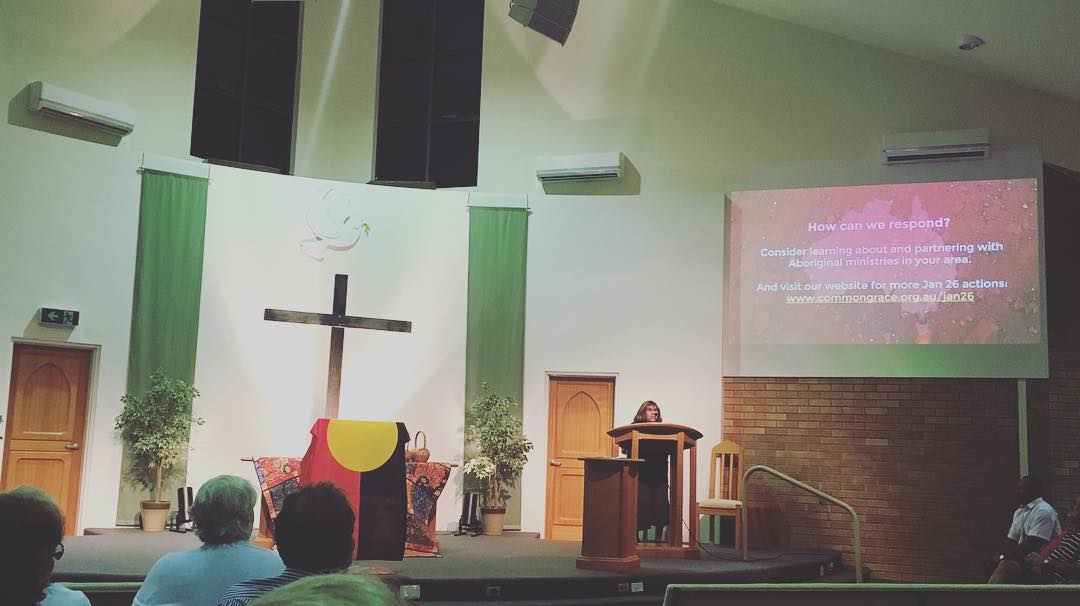
There were amazing things about this service that I’ll get to below; but it was a profound telling of that first Australian story, and the modern day implications of that story being over-written by other ‘Australian’ stories. The more I am confronted with this first story the more I recognise what drives the marches, the tent embassies, and the other efforts indigenous people make to have their story told, and the injustices it contains heard, recognised, and dealt with. I learned, as I listened in this service, that I shouldn’t speak as though there’s just ‘one first Australian story’… there were, I’m told (because this is how we learn stories) 300 indigenous nations living on this grand island. There are lots of stories about what it means to be Australian that come from our first people; and there’s little doubt that when European settlers declared Australia terra nullius and then set about establishing a colony of the commonwealth, part of what happened was a reflection of a desire to bring many of these stories to an end. And yet they, like the people who own these stories, survive. They survive as a testimony that terra nullius was a lie; as a testimony of resilience, and as a reminder that part of the settlement story was very, very, ugly.
There are things I love about my own ‘Australian story’… things I want to celebrate on ‘Australia Day’ that come from British settlement (but things that don’t necessarily need to be celebrated on the 26th of January).
I love our lifestyle, the laconic approach to almost everything, our in-built egalitarianism that means people are quite happy to think of our leaders as ‘mates’ (which also underpins the good bits of our democracy), there’s a dark side to this, of course, which manifests itself in tall poppy syndrome.
I love the sort of innovation that drives Aussies, born out of a need to survive in the harsher parts of our terrain. I love that some of our innovation is geared towards making laziness (or relaxing) more possible. One of my favourite things about visiting my pa, on the Campbell side, who was a sort of rural entrepreneur in country New South Wales, was finding little ‘fixes’ he’d installed around his house and shed (like belts cut in half and nailed to walls to keep the gates open or shut), this was a man who had owned stakes in produce stores, a piggery, and would buy farm machinery to on sell at a profit. When I think of what it means to be Australian, he’s the first picture I get in my head. I love everything about ‘Australia’ the image of my pa conjures in my head; I’ve got this romanticised notion of who he was, no doubt, and my own sense of what it means to be Australian includes the beaches of the north coast of New South Wales, and cane farmers, cane fires, and fishermen who run trawlers.
Now I’m citified, I love that being Australian means the easy availability of cuisines from many different cultures, and that my kids will go to school alongside people from many nations who now call Australia home.
I think it’s totally legit to look for an opportunity to celebrate these things. I love that I can do that with my neighbours and friends who share many of these loves (or similar loves when it comes to their own histories) and hold them as common goods that Australians enjoy as a result of our shared stories.
As a Christian, I also love that the Gospel of Jesus made it to these shores with European settlers (but hate how this Gospel is associated, forever, with what some of these settlers did), including, for example, the devoutly Christian governor of New South Wales, Lachlan Macquarie, who it is said believed “that the Protestant religion and British institutions were indispensable both for liberty and for a high material civilisation” (there’s a Christian leadership institute named after Macquarie and a secular university). He was almost certainly a Christian (I mean, I can’t say that anyone certainly is), but also, certainly, part of the ugly side of Australian settlement. Here’s an excerpt from his diary.
“I therefore, tho (sic), very unwillingly felt myself compelled, from a paramount sense of public duty, to come to the painful resolution of chastising these hostile tribes, and to inflict terrible and exemplary punishments upon…
I have this day ordered three separate military detachments to march into the interior and remote parts of the colony, for the purpose of punishing the hostile natives, by clearing the country of them entirely, and driving them across the mountains.
“In the event of the natives making the smallest show of resistance — or refusing to surrender when called upon so to do — the officers commanding the military parties have been authorised to fire on them to compel them to surrender; hanging up on trees the bodies of such natives as may be killed on such occasions, in order to strike the greater terror into the survivors.” — Orders from New South Wales Governor Lachlan Macquarie, 1816.
Australia’s history is messy. Ugly. This is true, as far as I know, of every human nation. We’re not unique in this; nor are we really unique in wanting to live in blissful ignorance, or comfortable denial, or to not be held responsible for the ugliness of our nation’s past. That this is true of all nations.
That I, personally, wasn’t responsible for the way Europeans arrived in Australia, doesn’t mean I haven’t benefited from European settlement (in a way that others have not), or from the stories we’re told, and that we tell, about what it means to be Australian. This benefit is part of what people talk about when they talk about privilege; that, and that the ‘establishment’ looks and talks like me and largely identifies with the same story. The white bloke who signed that order quoted above, Lachlan Macquarie, looked like me; spoke like me; could well be my ancestor; and it’s a sort of chronological snobbery to assume that I would’ve been able to avoid the evil he was part of perpetrating through these orders had I been in his shoes. It’s absolutely true that I wasn’t responsible for how the first Australians were treated by British migrants, but I am, in part, responsible for how they are treated today. It’s possible that in denying responsibility for our history, we also avoid taking on responsibility for our future. It’s absolutely true that many Aussies aren’t racists and hate the situation our first Australians find themselves in when it comes to health, imprisonment, education and life expectancy; but it’s individuals who build and renew systems.
This all brings me back to the 26th of January; which, since 1994, has been a federally recognised and public holiday, celebrated nationally: Australia Day.
But whose Australia is celebrated on this day?
In which stories is this a day for celebration?
In the establishment story it represents the expansion of empire and the arrival of a certain sort of civilisation, technology, and worldview (including the religion of the establishment, Christianity).
In the convict story it represents the start of us getting one over the bigwigs who sent us to a country of sun and surf from their rainy misery; a chance for us to embrace our anti-establishment, egalitarian, tendencies and our valuing of mateship (and beer).
In the migrant story, perhaps it is this settlement that made Australia a desirable destination to seek opportunity, prosperity or a fresh start.
In my own ‘story’; there’s little to no chance I’d exist, let alone exist in somewhere as amazing as Australia, if it wasn’t for European settlement, on this basis it’s hard for me to think that that first Australia Day was entirely a bad thing. It’s also quite probable that some sort of ‘conquest’ or settlement of Australia was going to happen without the British; and it’s possible that settlement would have been as bad, or worse, than British settlement… possible… but what we know for sure is that British settlement included such poetic instructions as ‘hang their bodies on the most public tree possible to terrorise their friends and family’… and that’s a real part of our history that we must confront, and be confronted by. It’s a part of our history that in some real way began around the 26th of January with the planting of the Union Jack on the shores of Sydney.
What are we celebrating on the 26th of January?
There are definitely good things that exist in Australia now because of how history has unfolded; there are things that are particularly good when viewed in the context of particular ‘Australian’ stories. But in the first Australians’ stories; well, I can, when I read things like Macquarie’s orders, and listen to the stories of indigenous friends and leaders of different indigenous communities, recognise that the 26th of January, this day, is not a day for celebration, but lament and anger. And it’s in moments like this that I need to consider the limits of my own story (especially its subjectivity), and ‘check my privilege’…
There are, also, things I don’t love about modern Australia; an ugliness that comes from, what I think in part is unchecked or unrealised privilege, and that is related, ironically, to our ‘settlement stories’. It certainly also comes from us wanting to honour the Australia shaped by people like my pa; the way of life and common goods they’ve carved out in living out the ‘settlement’ stories (either convict or establishment).
For many people there’s a good and natural desire to conserve things our ancestors have lived for and that have been produced through the ‘Australian story’ that is a sum total of all the Australian stories… but I suspect our treatment of asylum seekers is the product of a particular sub-story about what it means to be Australian… and I’m not sure this story is the one that should be our dominant story. But our treatment of asylum seekers (increasingly if the One Nation narrative picks up steam) comes from the idea that Australia is our country, and that our borders and lifestyle should be maintained against foreigners who come by boat and threaten our way of life. I hate what this leads us to do to those seeking asylum among us; those who’ve fled war, or persecution, who we lock up and systematically dehumanise for our own safety and security. I hate that we don’t recognise the inconsistency at the heart of this treatment of boat arrivals (and love the way I’ve heard the indigenous community speak of a desire to welcome and resettle refugees; which compounds the irony). I hate that we don’t recognise that this same desire to conserve a way of life is not something those who launched our ‘stories’ offered to the first nations people.
I hear indigenous Australians call for a change of date and I recognise the pain behind that call… and ultimately I think it’s the call of the indigenous community — the wronged — that we should hear.
It is clear that the 26th of January is not a day for unmitigated celebration of modern Australian life; and that the championing of a single Australian story is unhelpful anyway. If there was public will to change the date then that might be a very good thing indeed.
But my own (perhaps privileged) inclination is to leave ‘Australia Day’ on a contested date in order to make us sit with the paradox that is life in Australia. There is so much to love. So much to embrace. So much to celebrate. But there is also so much to hate. So much to overcome. So much to lament. And it is possible that attempting to do both — to experience the ‘contest’ of many Australian stories internally and to have that shape our own ‘story’ might lead to a better and more compassionate Australia; to a better future.
I’ve seen a few other people (all white so far, and mostly from the ‘establishment’ story) make this suggestion, and I’m offering it very tentatively; and I’m offering it largely because as a Christian I believe that grappling with paradoxes, rather than seeking neat resolution, is where real wisdom and progress towards what is good comes from. As G.K Chesterton put it:
“Christianity got over the difficulty of combining furious opposites, by keeping them both, and keeping them both furious.”
I’d like Australia to get over the difficulty of combining our contested stories by recognising that there is meaning, and warning, and opportunity in the midst of the conflict, not in victory/simplicity (the One Nation approach), or in elegant conflict-avoiding resolution (a date change). But, I recognise that I say this as someone who has the privilege of a story free from being a victim of the ‘fury’ of one of these stories, and that the elegant solution of changing the date is far better than most of the alternatives… I suspect keeping it would mean not just us white Aussies lamenting at the evil in our own story; but hearing the voices raised in protest of our first Australians; and it would only be of any value if we were really committed to listening to these voices and having them change our shared story in ways that bring meaningful, tangible, change to our future.
Whatever happens with the date, there’s a way that is better by far in terms of bringing real change. The way of Jesus.
How the Gospel story ‘contests’ this contest, and provides a better resolution (and how Aunty Jean models this)
“From one man he made all the nations, that they should inhabit the whole earth; and he marked out their appointed times in history and the boundaries of their lands. God did this so that they would seek him and perhaps reach out for him and find him, though he is not far from any one of us. ‘For in him we live and move and have our being.’” — Acts 17:26-28
“Once you were not a people, but now you are the people of God; once you had not received mercy, but now you have received mercy. Dear friends, I urge you, as foreigners and exiles…” — 1 Peter 2:10-11
There’s a tension at the heart of being a Christian when it comes to our national identity; we believe that God is sovereign and places us (as in gives us a place to live) as ‘storied creatures’ (who exist in time and space and do things, and inherit ‘stories’ from those who come before us), but we also believe that as Christians our story is profoundly changed from what it was before; in such a way that our first ‘belonging’; our first ‘story’ is not our family story, or national story, but the story of the mercy we receive through Jesus which makes us into a new family; a new kingdom (a kingdom of priests cf 1 Peter 2:8-10). We become ‘foreigners’ even in lands we call home; lands we’re born into, perhaps with thousands of years of family history.
This isn’t to say our place, and our stories, and our families, don’t matter; they still profoundly do. We’ve just got another story in the mix that trumps the default, self-interested, reactions that happen when human stories are contested like they are for us on January 26.
And this is why I loved Aunty Jean’s service of prayer and lament (which was not just Aunty Jean’s, but thoughtfully constructed by Brooke Prentis from Common Grace). Aunty Jean is passionate about her people; but passionately believes the best thing for them is not tied to the Australian story but to the Gospel story. She’s said this thing to me a few times, and said it in this service; the great hope for indigenous Australians is found in the cross of Jesus. And she means this. And she lives it. Lots of Aussies — indigenous and white — were protesting today, and I can understand this; Aunty Jean wants Christians to be praying; and what she models in this is a deep understanding of life as an ‘exile’; life as a foreigner in a country where her people have roots that are significantly deeper than mine; she lives as one who believes that forgiveness and embrace is the key to contested stories; not conflict and exclusion or exclusivity.
There’s a letter from the early church, the Epistle of Diognetus, which talks about what life as ‘exiles’ looks like. The writer (probably someone called Mathetes, says of Christians, that they don’t look profoundly different to the people of the surrounding culture; they don’t live in their own cities and speak their own language, they dress the same, eat the same, and mostly live the same in the ‘ordinary’ stuff… but somehow “they display to us their wonderful and confessedly striking method of life.” He says:
“They dwell in their own countries, but simply as sojourners. As citizens, they share in all things with others, and yet endure all things as if foreigners. Every foreign land is to them as their native country, and every land of their birth as a land of strangers… They pass their days on earth, but they are citizens of heaven.”
This epistle is a powerful sort of concept, and let me tell you, it’s powerful to witness. Because I see it in Aunty Jean. Aunty Jean who as a member of a people horribly oppressed responds in incredible love and compassion for her people, but extends that love to others, even to those who number with the oppressors. Aunty Jean who is a dynamo, who’ll embrace anyone who is prepared to journey with her towards a vision of reconciliation built on the mercy of God displayed in Jesus.
I’ve had the utter privilege of spending some time listening to Aunty Jean in the last few months, of hearing her vision for Australia, and for her people, of hearing her desire to raise up new indigenous leaders who are committed to the Gospel of Jesus, of wanting to see her people better embraced by the Australian church, and of wanting to see the church speak up with her in pursuit of justice where injustice exists. And I’ve caught a bit of this from her.
Our story is the story of a God who doesn’t just take ugly stories and make them new (which he does in us); he takes the ugliness of extreme human evil, and uses it for his good purposes. That’s what the story of the Cross is; the ugliness of the human heart on display, but the beauty of God’s reconciling love overpowering that evil (which is why I think there’s maybe some hope for Australia bringing our messed up stories together to make something beautiful). Our story is a story that calls us to take up our cross and follow Jesus; the Jesus who calls us to love our enemies, and calls for the forgiveness of those jeering him as he’s crucified… which when you understand the whole point of the Cross — is actually a picture of what Jesus is offering all of us… and there’s no part of the lives, stories, and identities of those who follow Jesus where that call, and that example, does not reach. And wow. It’s powerful when you see that lived in the context of these conflicting Aussie stories surrounding Australia Day.
Our job is to take up the picture of the kingdom of Jesus we’re offered in his story, the Gospel, and in its ending, which is found in the last pages of the Bible, and to live lives oriented towards that. It’s a powerful picture and that’s part of what compels us to live as exiles. A picture of life where our old stories of pain, and suffering, and evil, are done away with and all things are made new. A story built on reconciliation with God, that leads to reconciliation across historic and present enmity, with others.
Aunty Jean is committed to a sort of peacemaking that comes from having the story of the Cross of Jesus as her first story. She, and Common Grace’s Brooke Prentis, definitely want us to hear the story of our first Australians, and to respond with love and compassion; but they don’t tell that story in a way that leads to guilt or in a way that amplifies the contest; they tell it in a way that helps us to see an alternative future. And they don’t just tell the story, they live it.
It’s the “privilege” of the victim in the utterly subversive way that the Gospel story is lived, to be the one who can magnify the truth of the Gospel by offering forgiveness (this isn’t a thing you get to force either… it’s just beautiful when you see it. And it’s the privilege of the “privileged” in the Gospel story, to be prepared to give up privilege for the sake of the other). When it comes to Australia’s history the ‘privilege’ line is pretty clearly not the Indigenous Australians whose ongoing survival seems miraculous,
This ‘Australia Day’, it was Aunty Jean (and those she leads by this example) who modelled a way forward towards a better Australia to me, and if it looked like her vision for Australia, it’d be a beautiful place worth celebrating on any and every day.

